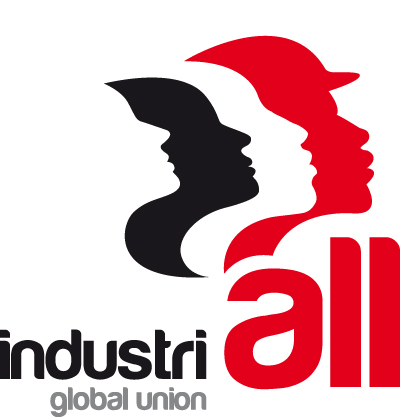The ILO estimates that the number of jobs in global supply chains in 40 countries increased from 296 million in 1995 to 453 million in 2013. This represents more than one fifth of the global workforce.
Research published by the ITUC shows that the 50 leading multinational corporations employ only six per cent of the workers who manufacture their products directly. Suppliers and subcontractors employ the remaining 94 per cent, or a 116 million-strong hidden workforce.
The expansion of global supply chains has been driven by a business model expressly designed to take advantage of low wages and inadequate regulation and enforcement.
Research further shows that respect for workers’ rights in supply chains is declining. In the garment industry, there was a 73 per cent drop in the workers’ rights score of the top 20 apparel exporters to the US between 1989 and 2010.
At the same time there was a 42 per cent reduction in the price paid for the clothes they produced.
Workers at all stages of global supply chains can justifiably ask why their pay and conditions are so poor. They are making products or contributing services for companies that rake in massive profits and could well afford to guarantee all workers in their supply chains a decent standard of living.
CSR has failed. It has not been able to meaningfully improve wages and working hours, nor to ensure respect for workers’ right to join a union. Most notoriously, social auditing and certification bodies SAI and BSCI gave clean bills of health, respectively, to the Ali Enterprises clothing factory in Pakistan before it burnt down killing 254 workers and Rana Plaza before it collapsed, killing 1,134 workers in Bangladesh.
IndustriALL supports the call of the workers’ group for an ILO Convention on global supply chains. It should establish legal accountability and provide guidance for developing policy and legislation to ensure respect for workers’ rights.
In the absence of global rules for supply chains, IndustriALL has been taking action to hold the multinational companies in its sectors accountable.
IndustriALL has signed 47 global framework agreements with multinational companies, covering over ten million workers. Our recently signed GFA with H&M has already proven instrumental in solving conflicts in the company’s supply chains in Myanmar and Pakistan, leading to union recognition and reinstatement of dismissed workers. This agreement cover 1.6 million workers and our GFA with Inditex 1.4 workers, employed by the garment brands’ suppliers and subcontractors, guaranteeing their fundamental labour rights, and providing for joint dispute resolution mechanisms at local, national and global levels.
This is global supply chain responsibility in action.
But nothing less than a fundamental change to the way that production is organized in garment supply chains will provide relief to workers from poverty wages and crippling working hours.
Such a fundamental change may turn out to be the legacy of the Rana Plaza collapse, a defining moment for the way that companies approach supply chain compliance. It made possible a groundbreaking, legally-binding agreement between global unions and more than 200 companies: the Bangladesh Accord on Fire and Building Safety.
The Accord establishes a new model of cooperation between global buyers and trade unions to enforce compliance with standards. The challenge now is to further develop this model to address other systemic supply chain rights violations.
Global garment companies and IndustriALL Global Union have now joined forces to apply such an approach to living wages in the garment industry in a process known as ACT.
IndustriALL has signed a Memorandum of Understanding with the global garment brands involved in the ACT process. The MoU is explicit in identifying the development of industry bargaining in garment producing countries as essential to achieving living wages and the need for effective recognition of workers’ rights to freedom of association and collective bargaining in order for this to be realized.
It requires the resulting industry-wide agreements to be linked to brand purchasing practices, to ensure that factories pay the agreed rate to their workers.
By creating mechanisms that link unions, buyers and suppliers, the ACT process aims to create a framework for genuine supply chain industrial relations for a fair and stable global garment industry.
ACT is the best chance we have to improve garment workers’ wages in a way that is scalable, sustainable and enforceable.
IndustriALL Global Union goes beyond naming and shaming multinational companies by entering into direct relationships with them to regulate their supply chains in the interests of workers. We need the assistance and cooperation of the ILO to support these efforts and to establish binding rules for supply chains that put a stop to the global race to the bottom on wages and working conditions.

